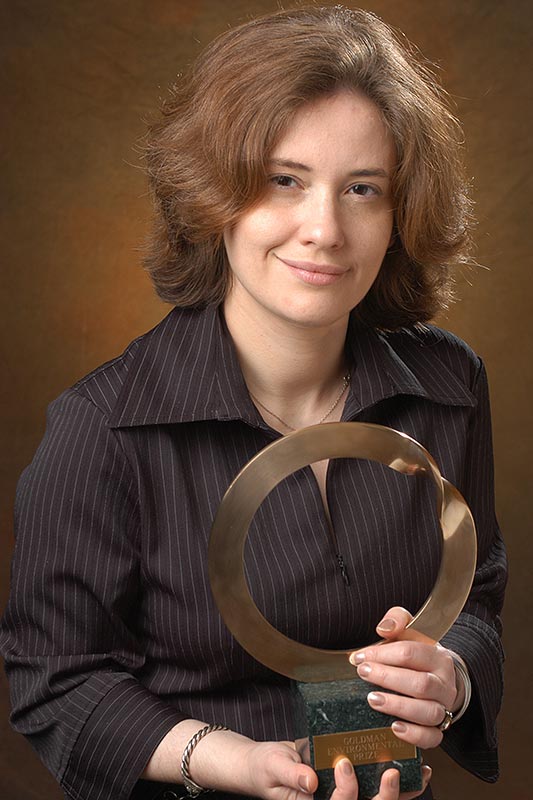In 2004, Manana Kochladze, Bankwatch’s Caucasus Coordinator, was honoured with the Goldman Environmental Prize – the so-called ‘environmental Nobel Prize’ – in recognition of her work in the campaign to minimise the harmful effects of the Baku-Tbilisi-Ceyhan (BTC) pipeline on local communities and the environment.
The BTC pipeline, lead by the British oil giant BP, is a 1,768 kilometres long oil pipeline that crosses Azerbaijan, Georgia and Turkey, transporting Caspian oil to western markets.
This highly controversial project was significantly backed in the name of ‘development’ by the European Bank for Reconstruction and Development (EBRD) and the World Bank’s private lending arm, the International Finance Corporation (IFC).
Bankwatch and its Georgian member group Green Alternative, lead by Manana, were part of the international Baku Ceyhan Campaign, comprising NGOs from around the world. The Baku Ceyhan Campaign carried out a detailed study of the environmental impact assessment for the Turkish section of the oil pipeline, and found 173 violations of international standards, including the World Bank’s own lending policies.
Her fearlessness and tenacity in the face of widespread government corruption and industry interests have won critical concessions to protect local villagers and have prevented the environment from being steamrolled.

The BTC campaign also branched out into documenting the project’s context and social and environmental implications via a 75 minute documentary entitled ‘The Source’.
The film has been seen by audiences all around the world and has picked up prizes at film festivals in seven countries.
Despite being presented with these findings, in late 2003 the EBRD and the IFC went ahead with their financial backing for the project. The BTC pipeline became operational in 2005.
But subsequent official acknowledgements have vindicated NGO work on the project.
In 2007, following a complaint lodged by Manana, the U.S. Government Overseas Private Investment Corporation, one of the project investors, recommended to BP that more safety precautions were needed for the pipeline. And in 2011, the UK government ruled that the BTC Company is breaking international rules governing the human rights responsibilities of multinational companies in its project operations.
